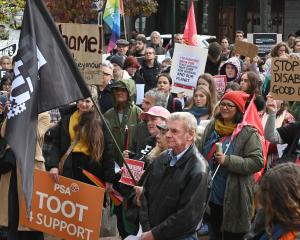Under an arrangement between opticians and the Government, beneficiaries and pensioners in the South will pay less for spectacles from next month.
Social Development Minister Paula Bennett said people getting a hardship grant would spend less on glasses and other optical services as a result of a new preferred supplier arrangement with opticians.
The ministry lent about $8.7 million each year to people to buy glasses and other optical services through hardship grants that had to be repaid, Mrs Bennett said.
The average grant to beneficiaries, pensioners and low-income people for optical services was more than $500.
The new arrangement offered a discounted price and would ''shrink'' both the debt the beneficiary had to repay and the taxpayer bill. Savings would total about $21 million over five years, she said.
A ministry spokeswoman said the negotiated discounted price varied from supplier to supplier and was commercially sensitive.
Clients receiving funding assistance for optical services would now pay ''considerably less'' than the current average.
The arrangement would be introduced to the lower South Island next month and the rest of New Zealand by the end of June.
The ministry has negotiated an inclusive price for an eye test, lenses, frames, a fitting service and repairs. All new eyewear would be covered by a two-year warranty.
The suppliers in the South included Visique, Specsavers and Eye Pro Marketing.
If people continued to use their current supplier for their ongoing eye care, they would need to use their own resources.
Clients would need to make an appointment with the relevant ministry before seeing an optometrist or optician.
Age Concern Otago communication manager Niall Shepherd said the arrangement was ''wonderful''.
''Eye care, like dental care and any other medical care, is a significant expense and anything that helps with that expense has got to be a good thing.''
Mr Shepherd hoped the preferred suppliers were spread across Otago so people in rural areas did not have to travel too far to get the discounted services.
Ministry procurement project manager Lynley Speers said the ministry was working to ensure as much coverage across New Zealand as possible. Until then, people with access to a hardship assistance grant could use their local supplier in the areas or they could travel to the nearest preferred supplier.












